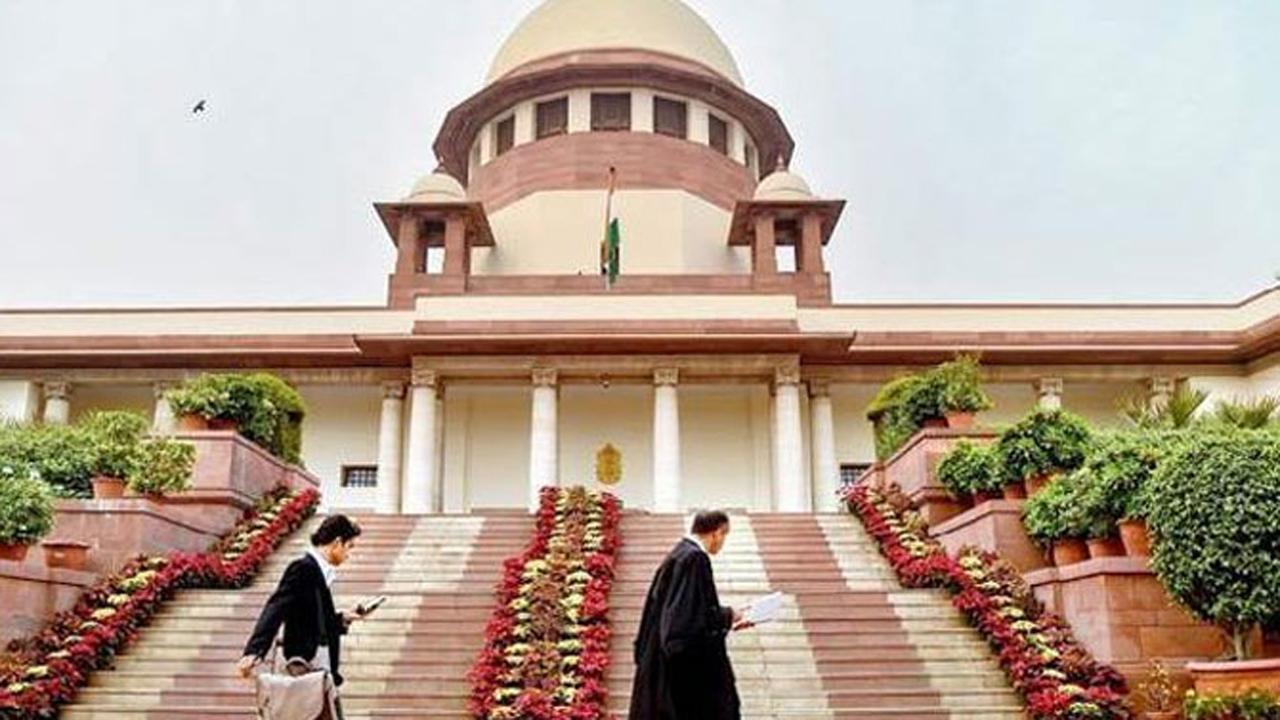Solicitor General Tushar Mehta, representing the Centre said that the Maharashtra government's decision is constitutional as the 102nd Amendment of the Constitution does not deprive a state of the power to declare its list of Socially and Educationally Backward Classes.

Supreme Court.
The Centre on Tuesday told the Supreme Court that it is of the view that the Maharashtra government can grant reservation to Maratha community in public education and employment.
ADVERTISEMENT
Solicitor General Tushar Mehta, representing the Centre, told a five-judge Constitution bench headed by Justice Ashok Bhushan that the Maharashtra government's decision is constitutional as the 102nd Amendment of the Constitution does not deprive a state of the power to declare its list of Socially and Educationally Backward Classes (SEBC).
Emphasising that Maharashtra government's granting reservation to Maratha community is constitutional, he said the Centre adopts the submissions of Attorney General K.K. Venugopal and it should be taken as Centre's view.
Last week, the AG had submitted before the apex court that 102nd Amendment does not take away the power of the state legislatures to ratify a law to determine the SEBC and then confer benefits on them.
As the top court asked Mehta why the Centre did not issue any notification of SEBCs under Article 342A so far, he said that the existing SEBC list continues.
At this, the bench queried as to what will be the correct interpretation of Article 342A, and what will be the effect of not having a list? Mehta said that there are petitions challenging the validity of 102nd Constitution Amendment, and once they come up for hearing, then this query would be probably answered.
Senior advocate Manish Singhvi, representing the Rajasthan government, said the determination of SEBC in each state is the sole prerogative of the government concerned and insisted that 1992 Indra Sawhney verdict capping reservation at 50 per cent requires to be examined by a larger bench.
Advocate Manish Singh, representing the Bihar government, cited two separate SEBC lists: for central service, one is prepared by the Centre and the other by state for state services. These lists have been existing since 1993. Singh added that Indra Sawhney judgment needs to be examined by a larger bench against the backdrop of changed social dynamics of the society.
The arguments on the petitions challenging Maratha reservation will continue on Wednesday.
This story has been sourced from a third party syndicated feed, agencies. Mid-day accepts no responsibility or liability for its dependability, trustworthiness, reliability and data of the text. Mid-day management/mid-day.com reserves the sole right to alter, delete or remove (without notice) the content in its absolute discretion for any reason whatsoever
 Subscribe today by clicking the link and stay updated with the latest news!" Click here!
Subscribe today by clicking the link and stay updated with the latest news!" Click here!







